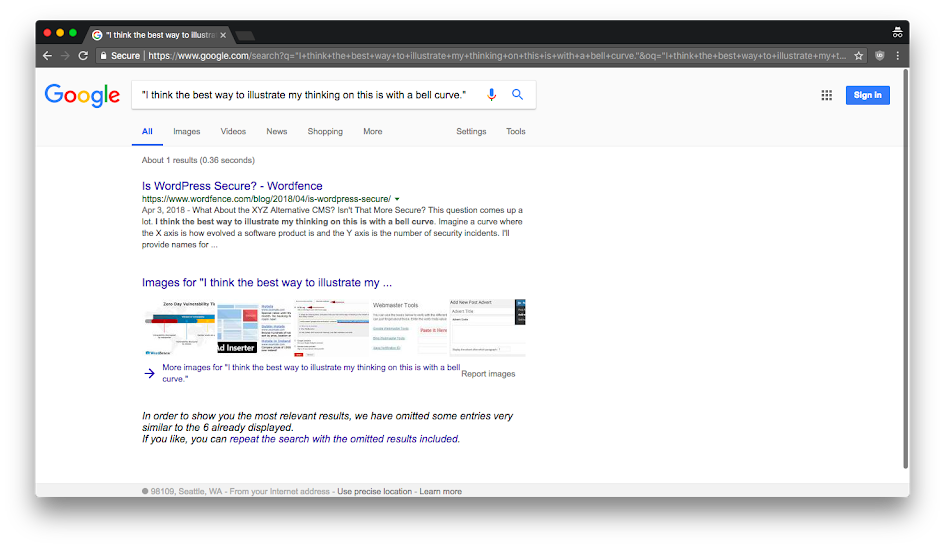Answers

Apr 19, 2018 - 09:27 PM
Mark, I have some tips I could share to avoid this in the future. I can see that Google is already flip-flopping a bit when I check this search in my private/incognito window:
Here are a few tips I'd suggest off hand that I can explain on our call:
1) submit new blog posts for indexation as soon as they're published to be "first to index"
2) include internal links within the article that point back to the same article (eg: link to https://www.wordfence.com/blog/2018/04/is-wordpress-secure/ from inside the article) -- this way if they copy the post it automatically includes a link back to the original source.
3) set up automatic social shares (plus wordpress.com, blogspot.com and others) using IFTTT to get an edge over the copycats on link authority
4) write a short press release with every major blog post and publish it right after publishing the blog post.

Here are a few tips I'd suggest off hand that I can explain on our call:
1) submit new blog posts for indexation as soon as they're published to be "first to index"
2) include internal links within the article that point back to the same article (eg: link to https://www.wordfence.com/blog/2018/04/is-wordpress-secure/ from inside the article) -- this way if they copy the post it automatically includes a link back to the original source.
3) set up automatic social shares (plus wordpress.com, blogspot.com and others) using IFTTT to get an edge over the copycats on link authority
4) write a short press release with every major blog post and publish it right after publishing the blog post.

Apr 20, 2018 - 09:34 AM
Unfortunately, this happens all the time. Usually the offending site doesn't rank well or is eventually blacklisted by Google. In a situation like this, it is rarely worth your time.
Looking at your situation, you actually rank #1 both for the query you provided and for the title of the post (one article ranks ahead of you but was written last year and is their own article).
The good news is that you already did the most important thing: you included links to your own site. The offending sites are linking to you a half a dozen times. These "votes" strengthen your site and also tells Google who the originating author is. I believe this is why the result set is now different than when you first posted this question.
Hayk's tips above might help you with that short window of an opportunity for a scraper site to outrank you because Google hasn't visited your site yet.
Looking at your situation, you actually rank #1 both for the query you provided and for the title of the post (one article ranks ahead of you but was written last year and is their own article).
The good news is that you already did the most important thing: you included links to your own site. The offending sites are linking to you a half a dozen times. These "votes" strengthen your site and also tells Google who the originating author is. I believe this is why the result set is now different than when you first posted this question.
Hayk's tips above might help you with that short window of an opportunity for a scraper site to outrank you because Google hasn't visited your site yet.




Add New Comment